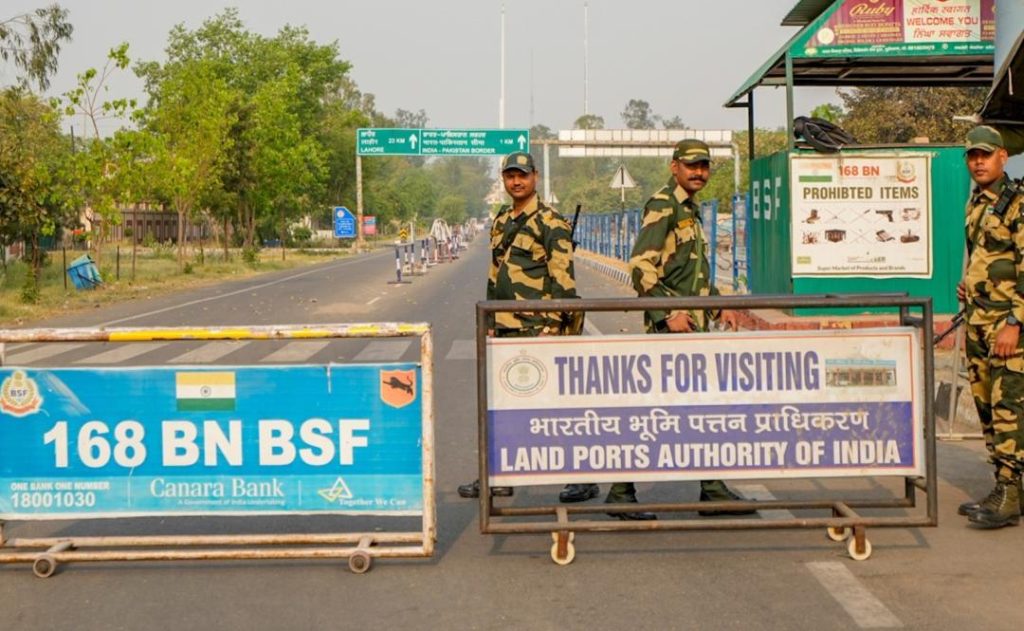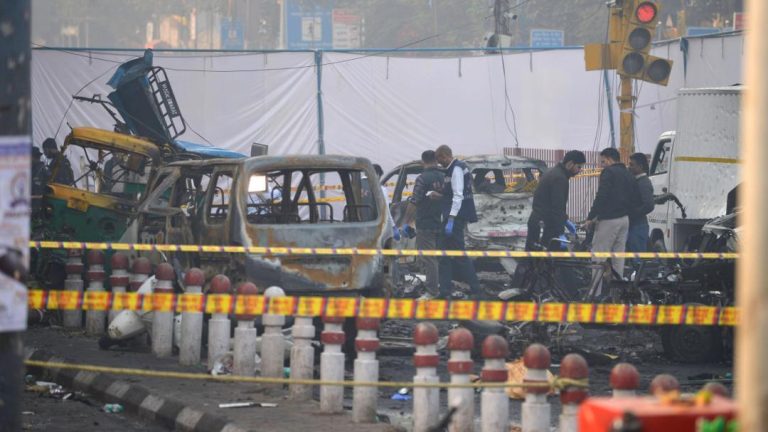
Attari-Wagah Border between India & Pakistan Completely Closed
The Attari-Wagah border, a symbol of the longstanding tensions between India and Pakistan, has been completely closed, according to a recent report by PTI. This drastic measure was taken in response to the escalating tensions between the two nations, following a series of provocative events.
The closure of the border was first reported on Thursday, with sources indicating that no person from either side crossed to the other side on the same day. This unusual move comes just days after Pakistan shut the border and stopped accepting its citizens who were deported by India.
The mass deportations of Pakistani nationals by India followed a devastating terrorist attack in Pahalgam, Kashmir, which left 26 tourists dead. The attack, which was carried out by a group of militants, sent shockwaves across the region and prompted a strong reaction from the Indian government.
In the aftermath of the attack, the Indian government decided to deport hundreds of Pakistani nationals who were found to be illegally living in the country. Pakistan, in response, shut the border and refused to accept any more deportees, claiming that India was trying to “export” its problems to Pakistan.
The closure of the Attari-Wagah border is a significant development in the already strained relations between India and Pakistan. The border, which is located in the states of Punjab and Punjab, has been a flashpoint for tensions between the two nations for many years.
In the past, the border has witnessed several incidents of violence and unrest, including the 2001 Indian Parliament attack and the 2008 Mumbai terror attacks, both of which were attributed to Pakistani-based terrorist organizations. The border has also been the site of several protests and demonstrations by both Indian and Pakistani citizens, who have demanded greater security and human rights protections.
The closure of the border is likely to have significant economic and social implications for the people living in the region. The border is a major trade route between India and Pakistan, with thousands of people crossing the border every day to trade goods and services.
The closure of the border is also likely to affect the many families who have relatives living on the other side of the border. The border has been a lifeline for many families, who rely on each other for emotional and financial support.
The Attari-Wagah border has also been a popular tourist destination, with thousands of people visiting the border every year to watch the elaborate flag-lowering ceremony that takes place every evening. The ceremony, which involves the lowering of flags on both sides of the border, is a symbol of the longstanding peace and cooperation between India and Pakistan.
However, the ceremony has been marred by several incidents of violence and unrest in recent years, including the 2019 Pulwama attack, which killed 40 Indian paramilitary personnel. The attack was carried out by a group of militants who infiltrated from Pakistan and has been widely condemned by the international community.
The closure of the Attari-Wagah border is likely to have significant implications for the ongoing peace talks between India and Pakistan. The two nations have been engaged in a series of talks to resolve their long-standing disputes, including the Kashmir conflict.
The talks have been ongoing for several years, but have made little progress due to the lack of trust and cooperation between the two sides. The closure of the border is likely to further complicate the situation and make it more difficult to resolve the disputes between the two nations.
In conclusion, the closure of the Attari-Wagah border between India and Pakistan is a significant development that is likely to have far-reaching implications for the people living in the region. The border has been a symbol of the longstanding tensions between the two nations, and its closure is a clear indication of the deep-seated mistrust and hostility between them.
As the situation continues to unfold, it remains to be seen how the closure of the border will affect the people living in the region and the ongoing peace talks between India and Pakistan. One thing is certain, however – the closure of the border is a stark reminder of the ongoing tensions between the two nations and the challenges that lie ahead in resolving their long-standing disputes.
News Source: https://x.com/PTI_News/status/1917976661141905530






